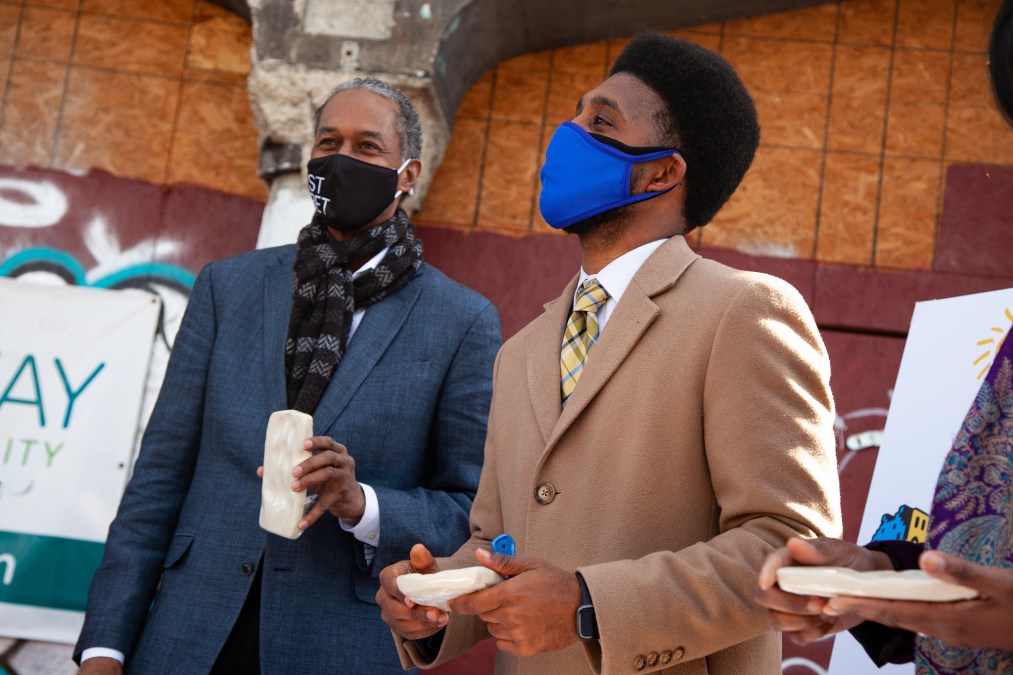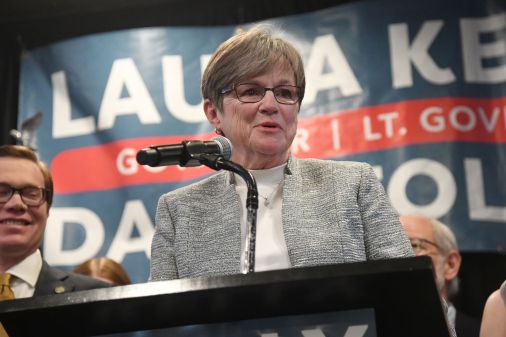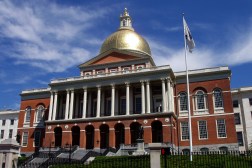Baltimore mayor names data officer and city’s first broadband director

Baltimore Mayor Brandon Scott last month made two key technology appointments to his administration, including a new chief data officer and the city’s first-ever director of broadband and digital equity.
In a March 22 announcement, Scott named Justin Elszasz, a deputy director in the city’s innovation office, as the new chief data officer. Jason Hardebeck, the chief executive of The Foundery, a local collaborative workspace for metalworking, woodworking and other industrial trades, was appointed to the broadband and equity position.
“My administration remains focused on modernizing the processes and practices of City government through a framework of equity and transparency, and I look forward to working closely with Justin and Jason to solve Baltimore’s most challenging problems in the years ahead,” Scott, who was sworn in last December, said in a press release.
In his new role, Hardebeck, who worked for the city’s broadband office from 2015 to 2019, is tasked with closing Baltimore’s digital divide. At the start of the COVID-19 pandemic, about 96,000 households — 40% of the city — lacked broadband connectivity, according to the Abell Foundation, an economic policy nonprofit organization in Maryland.
Hardebeck has also been the managing director of a health technology accelerator and the executive director of the Greater Baltimore Technology Council. As the broadband and digital equity director, he will serve as part of Scott’s executive team.
The digital equity job is a rare one in city government. Among major cities, Seattle has a had a longstanding digital equity program, though Scott’s office said Baltimore will now be one of the only cities where a digital equity director will also be a top administration official.
Meanwhile, Elszasz, the new chief data officer, also entered the role amid changes to the city’s governance. In making the appointment, Scott moved the CDO position out of its longtime home in the Baltimore City Information and Technology agency and into the mayor’s office, which will give him citywide latitude. So far, Scott’s office said Elszasz has started developing an “Open Checkbook” site that’ll allow residents to review city finances; he will also establish a data training program for city workers.
Scott’s transferring the CDO role out of the IT department may be the more immediately impactful move, though, as it’s something government data gurus have been pushing for. In a 2019 blog post for the Center for Government Excellence at Johns Hopkins University, Andrew Nicklin, a former open-government official for New York City and New York State, argued that chief data officers should be reporting to the heads of government, not the chief information officer.
“[I]t is a false perception that data is a product of IT systems,” he wrote. “If you are going to build a culture of data-informed decision-making in governments, that work starts with executives. Leaders need to represent and model the culture they wish to create in their organizations. Making a CDO part of the executive team sends a clear signal that data is a strategic asset to the organization.”
Both Elszasz and Hardebeck will report to Baltimore’s city administrator, Scott’s office said.





